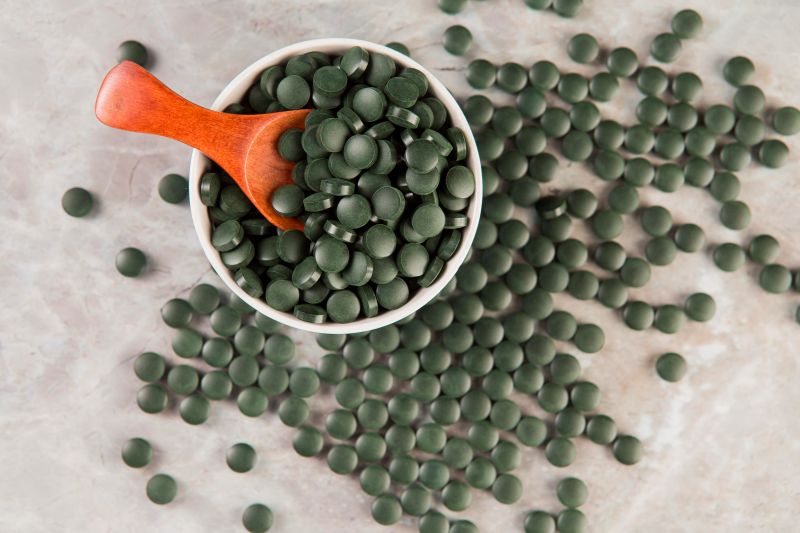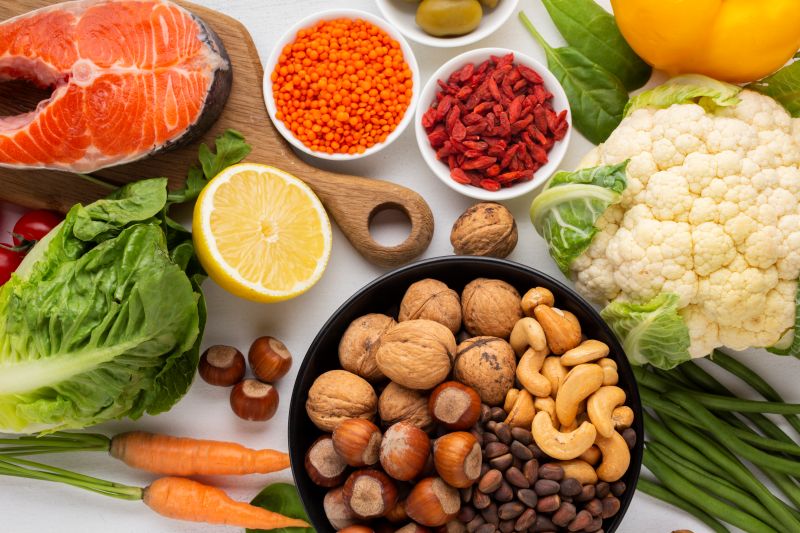Iron is an essential mineral that plays a crucial role in maintaining overall health and bodily functions. It is a key component in the production of hemoglobin, a protein in red blood cells that transports oxygen to tissues. Iron deficiency can lead to anemia, causing fatigue and weakening the immune system. Therefore, incorporating iron-rich foods into your diet is vital to ensure optimal health.
1. The Importance of Iron
Iron serves several essential functions in the body:
– Hemoglobin production: Iron is a fundamental element in the formation of hemoglobin, enabling red blood cells to transport oxygen efficiently.
– Immune system support: It strengthens the immune system, helping the body fight infections.
– Boosting energy and focus: A lack of iron can cause fatigue, reduced concentration, and decreased work performance.
– Fetal development: Pregnant women require sufficient iron to support fetal growth and reduce the risk of premature birth.
One of the best ways to maintain adequate iron levels is through a balanced diet. Below are some iron-rich foods that you can incorporate into your daily meals.

Iron plays an important role in human health.
2. Iron-Rich Foods
2.1. Red Meat – A Highly Absorbable Iron Source
Red meats such as beef, lamb, and pork are excellent sources of heme iron, the most easily absorbed form of iron. A 100-gram serving of beef provides approximately 2.7 mg of iron, fulfilling a significant portion of daily iron requirements.
Organ meats, particularly liver, are also rich in iron. For example, beef liver contains up to 6.5 mg of iron per 100 grams. However, due to its high cholesterol content, liver consumption should be moderated.
2.2. Seafood – A Nutritious Iron Source
Seafood, including oysters, clams, shrimp, and fish, provides a substantial amount of iron. A 100-gram serving of oysters can contain between 3 to 8 mg of iron. Additionally, salmon and tuna are excellent sources of iron and other essential nutrients like omega-3 fatty acids and vitamin D.
Certain small-boned fish, such as sardines, offer both iron and calcium, supporting bone health.
2.3. Eggs – A Convenient Iron Source
Eggs are a nutrient-rich food containing a moderate amount of iron. A large egg provides approximately 1 mg of iron, with the yolk being the richest source.
In addition to iron, eggs contain vitamins and minerals such as vitamin B12 and choline, which are beneficial for brain function.
2.4. Dark Leafy Greens – Plant-Based Iron Sources
Vegetables such as spinach, amaranth, kale, and broccoli are rich in iron. A cup of cooked spinach provides approximately 6.4 mg of iron. However, plant-based iron (non-heme iron) is less bioavailable than animal-derived iron, so pairing it with vitamin C enhances absorption.
Dark leafy greens also provide antioxidants and folate, promoting cardiovascular health and red blood cell production.

There are many iron-rich foods that people should include in their daily meals.
2.5. Whole Grains – Iron-Rich Breakfast Options
Whole grains such as oats, brown rice, quinoa, and whole wheat bread contain iron. Many fortified breakfast cereals provide between 3 to 18 mg of iron per serving.
Incorporating whole grains into meals also boosts fiber intake, promoting digestive health.
2.6. Dried Fruits – A Natural Iron Source
Dried fruits like raisins, dried apricots, prunes, and dates contain considerable amounts of iron. A small handful of raisins provides approximately 1 mg of iron, making it a convenient and natural supplement.
Additionally, dried fruits are high in potassium and antioxidants, supporting heart health.
3. Enhancing Iron Absorption
Although iron-rich foods are essential for maintaining health, the body’s ability to absorb iron varies depending on dietary combinations and lifestyle habits. Here are some strategies to optimize iron absorption:
– Pairing iron with vitamin C: Vitamin C enhances the absorption of non-heme iron found in plant-based foods. Combining iron-rich foods such as spinach, lentils, and nuts with vitamin C-rich foods like oranges, strawberries, bell peppers, or tomatoes can maximize iron uptake.
– Avoiding iron inhibitors: Certain substances can reduce iron absorption. Tannins in tea, caffeine in coffee, and calcium in dairy products can inhibit iron absorption when consumed with iron-rich meals. To optimize iron intake, avoid consuming these substances close to iron-rich meals.
4. Iron Supplements: When and How to Use Them
In some cases, dietary iron intake may not be sufficient, especially for pregnant women, individuals with iron-deficiency anemia, or athletes with higher iron demands. In such instances, healthcare professionals may recommend iron supplements.

Consult a doctor on how to incorporate iron-rich foods into your diet.
To ensure safe and effective iron supplementation, it is advisable to consult a doctor, as excessive iron intake can lead to side effects such as constipation, nausea, or liver complications.
Conclusion
Iron is a fundamental mineral necessary for sustaining health and preventing anemia. Consuming iron-rich foods is the safest and most effective way to meet daily iron needs. Maintaining a well-balanced diet with diverse iron sources ensures optimal energy levels and overall well-being.








